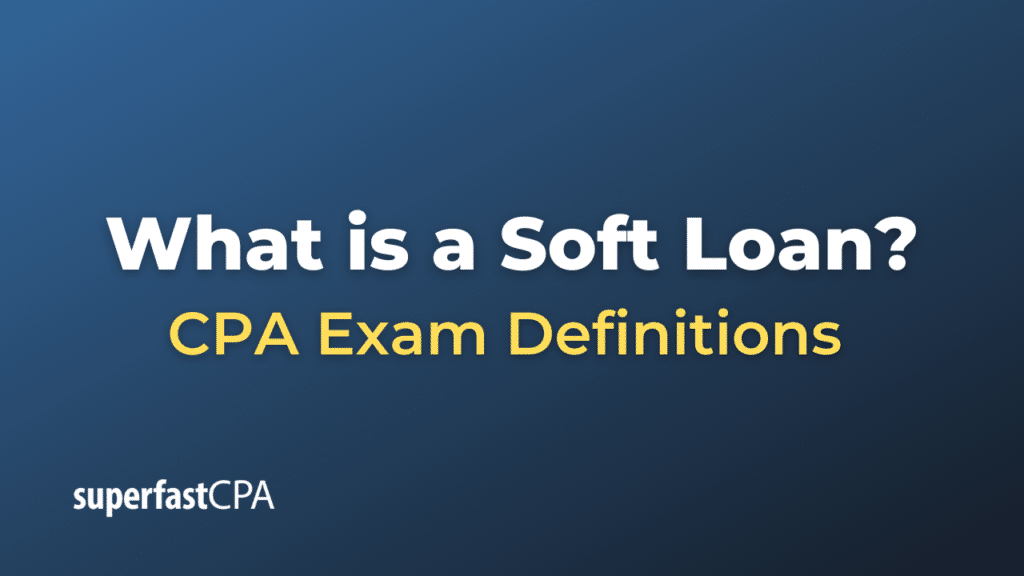Soft Loan
A “soft loan” is a loan that is offered on terms more generous than market loans. The generosity could manifest in the form of a lower interest rate, a longer repayment period, or a grace period during which only interest or no payments are due. Soft loans are typically provided by governments, development agencies, or non-governmental organizations rather than commercial lenders.
The primary purpose of soft loans is not to generate profits for the lender but to support economic development, foster international cooperation, or provide humanitarian aid. Often, soft loans are extended to developing countries to finance various projects that aim to promote economic development and improve living standards.
Characteristics of a Soft Loan:
- Below-Market Interest Rates: The interest charged is typically lower than what would be charged by commercial lenders for a similar risk profile.
- Extended Grace Periods: Borrowers might have a period during which they are not required to make any payments, or only interest payments are due.
- Longer Repayment Periods: Soft loans often come with extended repayment durations, giving the borrower more time to repay the loan than they would have under market conditions.
- Fewer Strings Attached: While soft loans can have conditions, they are often less restrictive than those associated with loans from commercial lenders or institutions like the International Monetary Fund (IMF).
- Developmental Focus: The use of the loaned funds is often earmarked for specific projects or initiatives that contribute to social or economic development, such as infrastructure projects, healthcare, or education.
Example of a Soft Loan
Let’s delve into a fictional example to illustrate the concept of a soft loan:
Scenario: Clean Water Project in the Republic of Vireland
Background: The Republic of Vireland, a developing country in Africa, has significant challenges with access to clean water in its northern regions. A substantial portion of the population relies on untreated water sources, leading to health issues and increased medical costs.
The International Development Agency (IDA) Initiative: Recognizing the dire need for clean water in Vireland, the International Development Agency (IDA) offers the Vireland government a soft loan to help establish clean water infrastructure, including water purification plants and distribution networks.
Terms of the Soft Loan:
- Loan Amount: $50 million
- Interest Rate: 1% per annum (far below the market rate for similar risk profiles)
- Grace Period: First 5 years (no principal or interest payments required for the initial five years)
- Repayment Period: 20 years (after the grace period)
- Specific Use: Funds must be used for the development and maintenance of clean water infrastructure in the northern regions.
Outcome: With the assistance of the soft loan, the Republic of Vireland embarks on its ambitious clean water project. Over the next few years, multiple water purification plants are established, and an efficient distribution network is created.
By the end of the grace period, the Vireland government starts generating revenue from the water distribution systems, which aids in making the minimal interest payments and eventually the principal repayments.
Benefits:
- Health Improvements: Access to clean water drastically reduces water-borne diseases.
- Economic Boost: Reduced medical costs, increased productivity from a healthier population, and jobs created from the infrastructure projects enhance Vireland’s economy.
- Debt Management: The generous terms of the soft loan allow Vireland to manage its debts efficiently without putting excessive strain on its finances.
This fictional example showcases how soft loans can play a pivotal role in assisting developing countries to manage critical projects that lead to better living standards and overall economic improvement. The favorable terms ensure the receiving country is not overwhelmed with debt and can use the funds effectively for developmental purposes.












